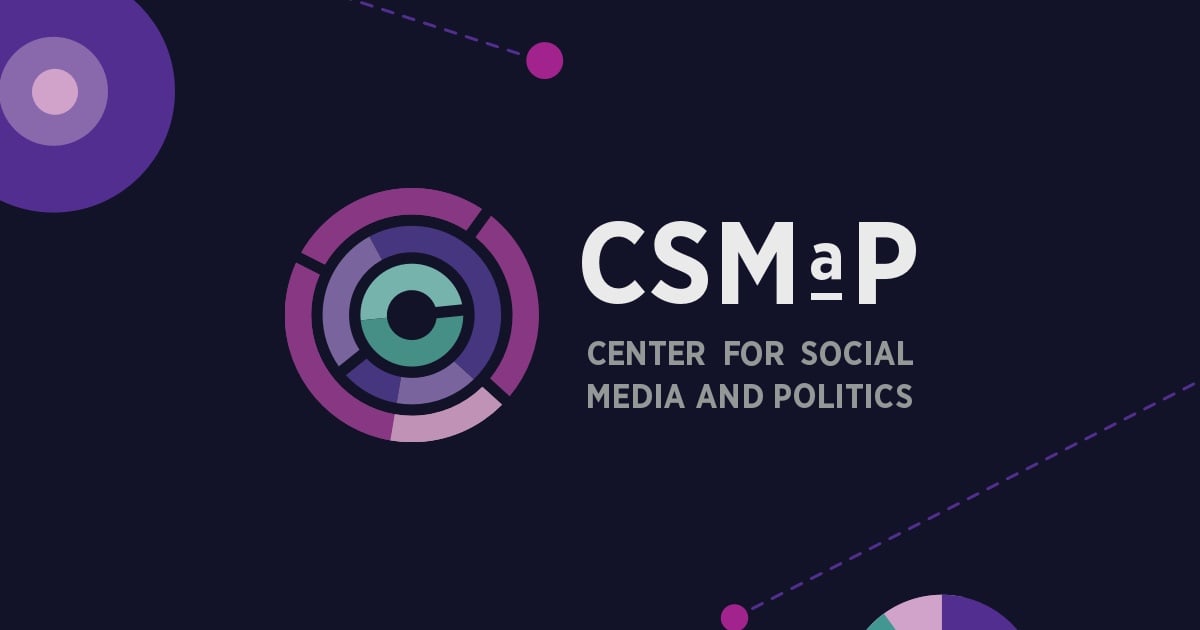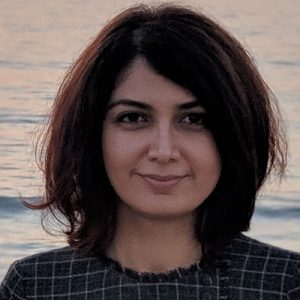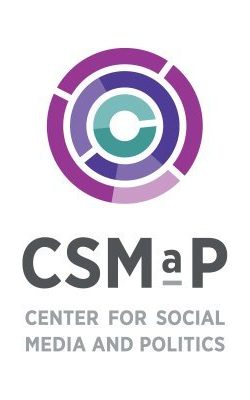Originally published by NYU CSMaP
CSSLab Associate Research Scientist Homa Hosseinmardi will moderate a panel on media consumption, misinformation, and polarization as part of NYU’s Center for Social Media and Politics Seminar Series.

2022 Midterms: CSMaP Seminar Series
The NYU Center for Social Media and Politics‘ four-part seminar series, starting October 12, will bring together leading scholars to explore the intersection of social media, politics, and democracy ahead of the 2022 midterm elections.
The virtual seminar series will highlight the latest research and explore the following questions:
- October 12: How does media coverage, news consumption, and social media behavior affect polarization and belief in misinformation?
- October 19: How do candidates and officeholders use social media to drive the political conversation?
- October 26: How does age influence our political and cultural divisions, and how will this generational conflict define politics in the coming decade?
- November 2: How do new and niche social media platforms fit into the broader online landscape and what impact could they have in 2022?
Media Consumption, Misinformation, and Polarization
Wednesday, October 12, 2022 — 12:00 – 1:00 pm ET
Social media has transformed the media and political landscape, but the vast majority of Americans still get their news from traditional sources such as local TV, cable TV, radio, and newspapers. As the media environment continues to fracture, how does news consumption and social media behavior affect how voters think about and engage in politics? Moderated by the CSSLab’s Homa Hosseinmardi, this seminar will present new research on news exposure online, media consumption and the spread of misinformation in both English and Spanish, and the effects of partisan media on viewers’ beliefs and attitudes.
Panelists
Joshua Kalla is Assistant Professor of Political Science at Yale University with a secondary appointment as Assistant Professor of Statistics and Data Science. His research studies political persuasion, prejudice reduction, and decision-making among voters and political elites, primarily through the use of randomized field experiments. He will present a working paper, “The impacts of selective partisan media exposure: A field experiment with Fox News viewers.”
Jonathan Nagler is a Co-Director of NYU’s Center for Social Media and Politics and Professor of Politics and affiliated faculty at the Center of Data Science at New York University. Nagler’s research focuses on voting and elections, and the role of social media, as well as traditional media, in politics. He will present findings from the CSMaP independent panel project, which examines media consumption, discussion of political issues, and the spread of information in both English and Spanish in the lead up to the 2022 U.S. elections.
Magdalena Wojcieszak is a Professor of Communication at the University of California, Davis and an Associate Researcher at the Amsterdam School of Communication Research at the University of Amsterdam, where she directs the European Research Council grant ERC EXPO. Her research focuses on the selection of news and political information in the current media environment and on information effects on individual socio-political outcomes. Wojcieszak will present “No Polarization From Partisan News: Over-Time Evidence From Trace Data,” published in The International Journal of Press/Politics, and other research on news exposure online.
 Moderator
Moderator
Homa Hosseinmardi is a Senior Research Scientist at the Computational Social Science Lab at the University of Pennsylvania. Her research utilizes advances in computational methods to study misleading and biased information; political radicalization and algorithmic bias on online platforms; and misbehavior on online social networks. She is co-author of “Quantifying partisan news diets in Web and TV audiences,” published in July 2022 in Science Advances, and “Examining the consumption of radical content on YouTube,” published in 2021 in PNAS.
—
The Zoom registration includes options to register for one or all panels. See the full speaker lineup below.
This event series is co-sponsored by NYU Votes, an initiative aiming to ensure that all eligible voters in the NYU community are able to cast their vote either in-person or by mail. NYU Votes also encourages all NYUers to become involved with the process, through volunteering, advocacy work, and other engagement opportunities.

About CSMaP
Through cutting-edge research, NYU’s Center for Social Media and Politics works to understand politics, inform public policy, and strengthen democracy in the digital age.
Over the past two decades, social media and other digital technologies have transformed our society. It’s made it easier than ever to find information, engage with politics, and connect with people across the globe. But it’s also helped fuel misinformation, enable harassment, and foment polarization, presenting urgent challenges to democratic governance.
NYU’s Center for Social Media and Politics (CSMaP) is a leading academic research institute studying how this ever-shifting online environment impacts politics, policy, and democracy.
